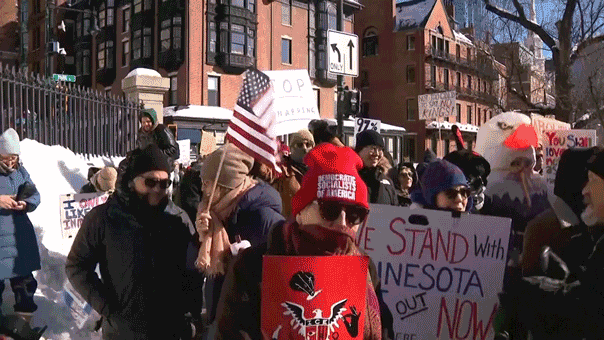NEW YORK – A grand jury in a rare state-level terrorism case against two men accused of plotting to blow up New York City synagogues has apparently whittled out the most serious charges that city officials trumpeted but federal terrorism authorities declined to pursue.
Ahmed Ferhani and Mohamed Mamdouh pleaded not guilty Wednesday to lesser state terror and hate-crime charges, including criminal possession of a weapon as a terror crime.
The pair initially were charged with second-degree conspiracy as a terror crime, which carries the potential for life in prison. The latest charges including the weapons count are punishable by up to 32 years behind bars. The men also face lesser counts of terror conspiracy and hate-crime conspiracy.
Police Commissioner Raymond Kelly and District Attorney Cyrus R. Vance Jr. said the remaining charges still accuse the men of posing a legitimate threat to the city's Jewish community.
But defense lawyers said the development reflects a case that had been overblown.
"The charges have been greatly reduced," Mamdouh's lawyer, Aaron Mysliwiec, said after court. "Without even hearing from the defense, a grand jury decided that the original sensational allegations were not true."
Ferhani's lawyers called the case a trumped-up, politically motivated prosecution of a man authorities knew had a history of mental illness so profound that he had been involuntarily committed to mental hospitals dozens of times.
"You will see that this case is bogus. ... It's total entrapment," said one of his lawyers, Elizabeth Fink, adding that Ferhani's intentions were "absolutely not" terrorism.
Ferhani and Mamdouh were arrested May 11 on charges that they wanted to strike a synagogue to avenge what they saw as mistreatment of Muslims around the world. An undercover officer who investigated them reported that Ferhani wanted to become a martyr. The officer said secret recordings caught the men calling Jews "rats" and other names.
Ferhani, an Algerian immigrant, suggested disguising himself as a worshipping Jew so he could infiltrate a synagogue and leave a bomb inside, prosecutors have said in court documents. He sold crack cocaine, painkillers and marijuana to try to finance the scheme, according to an indictment released Wednesday, though he's not facing any drug charges.
Mamdouh, a 20-year-old American citizen of Moroccan descent, was enthused about bombing a synagogue and strategized about ways to avoid detection, such as not discussing bombs over the phone and paying for things with cash instead of credit cards, according to court documents.
Authorities say Ferhani was nabbed in a sting buying guns, ammunition and an inert hand grenade on a Manhattan block. Mamdouh was picked up a few blocks away.
Mamdouh told detectives that he, Ferhani and a third person, evidently the undercover investigator, were watching a documentary about Zionists about a month earlier when Ferhani mentioned blowing up a synagogue, according to a police account of his statements released Wednesday.
According to the account, Ferhani later told Mamdouh he was planning to meet with someone who could sell them guns, then called him on May 11 to say, "We are going into the city to make some moves and pick up something heavy," namely a gun.
The arrests were announced last month at a City Hall news conference, where Mayor Michael Bloomberg joined Kelly and Vance and when they explained that the case was brought under an obscure terrorism law passed shortly after the Sept. 11, 2001, attacks. Police said the FBI was made aware of the investigation but decided not to get involved.
The FBI, a central player in past terror investigations, has declined comment.
But a law enforcement official, who wasn't authorized to speak publicly and spoke on condition of anonymity, has told The Associated Press that the FBI had reservations about how the probe was conducted and concluded the allegations weren't worthy of a federal terrorism case.
Police and Manhattan prosecutors have stressed that they saw the threat as serious.
"I'm not certain what happened in the grand jury, but we'll accept the fact that the possible sentence is 32 years," Kelly told reporters Wednesday. Vance said in a statement that the men's "desire to commit violent jihad against Jewish Americans is not only an act of terrorism, but a hate crime."
Ferhani's lawyers said it was a case of fanning fears.
"This is a political case, brought by political people, for their own political purposes," Fink said.
Ferhani's lawyers didn't specify his illness. They said the 26-year-old has been institutionalized as many as 30 times, most recently in 2009. His mother has repeatedly called police to subdue him, lawyer Lamis Deek said.
Ferhani is unemployed. He moved to the U.S. in 1995 from Algeria with his parents, and claimed asylum, authorities said. He was granted permanent resident status but is now facing deportation.
Mamdouh immigrated with his family in 1999, officials said. His parents are local business owners.
"He's not a political or a religious person, and he's certainly not part of any radical organization. This is certainly not a terrorism case," Mysliwiec said.
Ferhani and Mamdouh lived blocks away from each other in Queens.
They remain held without bail and are due back in court Sept. 20. They appeared in orange jail jumpsuits and said nothing except "not guilty" during the brief hearing.
___
Associated Press writers Colleen Long and Tom Hays contributed to this report.
___
Jennifer Peltz can be reached at http://twitter.com/jennpeltz








































